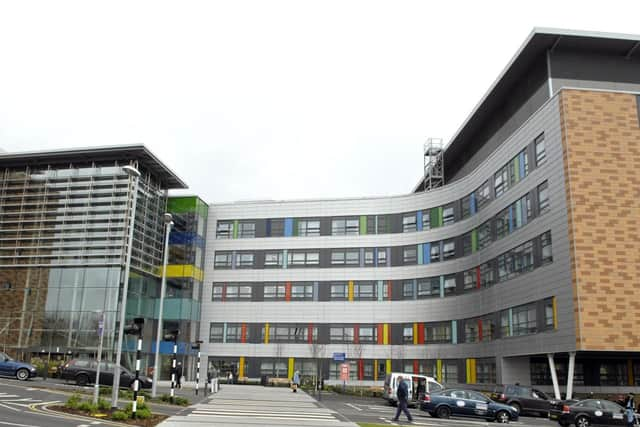Portsmouth cancer scans dropped by a quarter after Covid-19 pandemic hit
and live on Freeview channel 276
A pause on non-urgent treatment, a shortage of radiographers and a reduction in people coming forward for tests are said to have affected scans across England.
Teams at Portsmouth Hospitals University NHS Trust performed more than 20,000 fewer imaging scans between March last year and February in comparison to the same period in 2019-20, NHS figures show.
Advertisement
Hide AdAdvertisement
Hide AdImaging tests that can be used to diagnose or detect cancer were carried out 74,460 times during that time – a 25 per cent drop.


The number of brain MRI scans fell by 16 per cent while there were 24 per cent0 fewer chest x-rays performed and a drop of 29% in ultrasounds of the pelvis and abdomen.
Dr William Ramsden from the Royal College of Radiologists (RCR) has called for further investment into radiology training.
He said: The pause in non-elective NHS work during the coronavirus peak last spring had a huge knock-on impact on waits for scans and treatment.
Advertisement
Hide AdAdvertisement
Hide Ad‘NHS England has helped increase radiology capacity, coming through with emergency funding for scanners and private provider support, which must continue.’
Dr Ramsden said the RCR supported NHS plans to speed up scan access via diagnostic hubs but said thousands more radiologists were needed in order to ensure the changes could be implemented successfully and patients treated, scanned and diagnosed in a timely manner.
Throughout the pandemic, hard-working NHS staff found themselves being reassigned to Covid-19 wards to deal with the intense demand, especially at the start of the pandemic in March last year.
An NHS spokesperson praised the tireless efforts of NHS staff and said diagnostic imaging services had continued despite the impact of the pandemic, with 90 per cent of urgent referrals with suspected cancer seen within two weeks in February.
Advertisement
Hide AdAdvertisement
Hide AdShe added: ‘We know that fewer people have come forward for checks during the pandemic but we continue to urge anyone experiencing worrying symptoms that could be cancer to contact their GP as soon as possible so the NHS can investigate them as soon as possible.’
A message from the Editor, Mark Waldron
You can subscribe here for unlimited access to our online coverage, including Pompey, for 27p a day.
Comment Guidelines
National World encourages reader discussion on our stories. User feedback, insights and back-and-forth exchanges add a rich layer of context to reporting. Please review our Community Guidelines before commenting.
